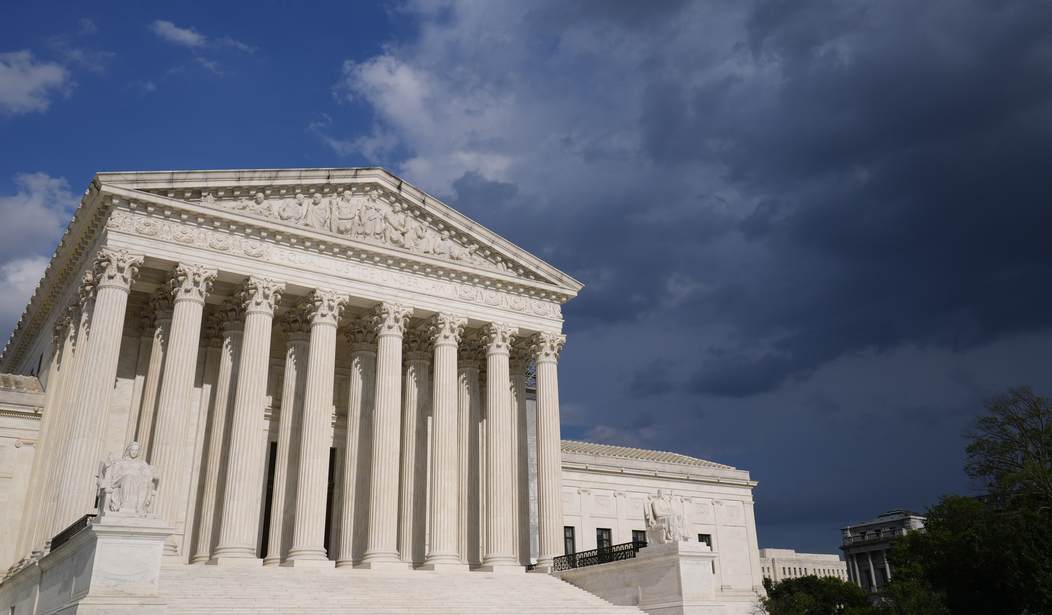On November 14, Congress will consider two bipartisan bills that'd make it easier for entrepreneurs and small businesses to patent their discoveries and inventions -- and defend those patents from theft. The bills would propel our economy forward and generate high-paying American jobs.
Our Constitution notes that patents and other forms of intellectual property protection are foundational for "progress" and empowers Congress to grant inventors "exclusive right" to their "discoveries" for a limited time before others can make free use of them.
Those IP protections have driven our economy for nearly 250 years. Today, IP-intensive industries account for nearly half of the nation's economic output and support about 50 million jobs. An individual working in one of these sectors earns 60% more, on average, than an employee in a non-IP business.
Unfortunately, intellectual property protections currently don't adequately extend to some of our most consequential sectors -- including AI, biotech, fintech, and next generation manufacturing. Without patent protections, cutting-edge innovations languish in the lab or the garage, never reaching the public. Aspiring entrepreneurs can't secure key investments when patent eligibility is unreliable.
Consider how we're handicapping ourselves.
Courts often prohibit patents for new software, such as AI, 3D printing, and machine learning applications. A 2014 Supreme Court decision, known colloquially as Alice, led to the development of a stringent legal test to determine whether a software program is eligible for a patent. Since that case, courts have invalidated numerous software patents as "abstract ideas."
Similarly, medical diagnostic tech often fails to fit into the existing patent framework. These exciting innovations can offer numerous benefits, such as faster biopsies for early cancer detection, or portable ultrasounds to diagnose heart failure. Yet the Supreme Court's 2012 ruling in Mayo led to a legal test that excludes many of these wonders from patentability.
Recommended
A small startup might make a life-saving discovery in diagnostics, genetic markers, or biological relationships, but the Mayo test regularly disqualifies these breakthroughs as "abstract" concepts or measurements of "natural phenomena." Without the possibility of patent protection, innovators lose out on investment opportunities. In the four years following the Mayo decision, investment in diagnostic disease technology fell $9.3 billion below pre-Mayo projections.
America's legal system doesn't just block inventors' access to IP protection. It also empowers bad actors -- often some of the biggest names in tech -- to prey on the patented discoveries of small startups.
It's called "efficient infringement," and it works like this: A big company wants to make use of someone else's patented discovery. So without even seeking a license, it just goes ahead and does so. The rightful patent holder then sues for infringement. The big company countersues seeking to invalidate the patent.
That's bad enough. The problem gets even worse due to a 2011 law that created an additional tribunal for patent challenges within the U.S. Patent and Trademark Office. Infringers thus get two chances, one in court and one at the Patent Trial and Appeal Board, to take down the patents that they have already willfully infringed upon. They have vast legal and other resources at their disposal and a ruthless willingness to use them to grind down inventors and fledgling entrepreneurs.
This whole framework is just as perverse as the court-inspired restrictions on patent eligibility. And that's where Congress comes in. Legislators will soon mark up two reform bills that tackle these problems.
The Patent Eligibility and Restoration Act (PERA) would remove the current court-imposed restrictions on patent eligibility. With IP securely protected, entrepreneurs will be able to attract more capital, scale their operations, and create jobs for their communities.
The next proposal, the PREVAIL Act -- which stands for "Promoting and Respecting Economically Vital American Innovation Leadership" -- restricts the ability of big companies to get away with infringement via patent invalidation. The bill tightens up on the PTAB's lax standards for invalidating a patent, aligning them with those in federal courts, and prohibits duplicative proceedings in the court and at the PTAB.
With these reforms, we'll see an explosion of opportunity -- one in which the next AI application or medical discovery isn't hobbled by ill-considered and outmoded barriers to IP protection.
James Edwards is Executive Director of Conservatives for Property Rights.
























Join the conversation as a VIP Member